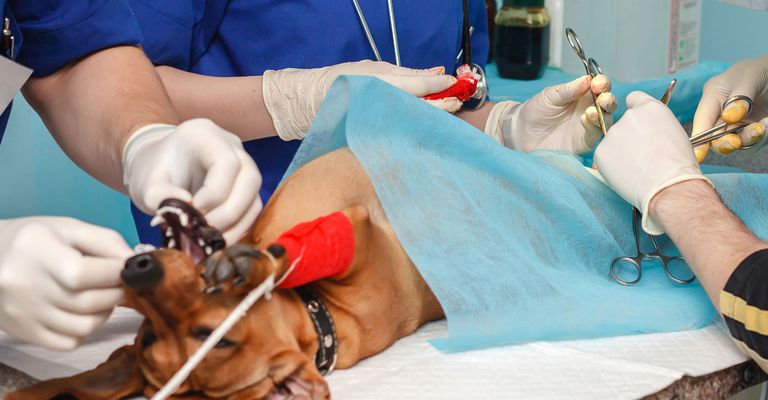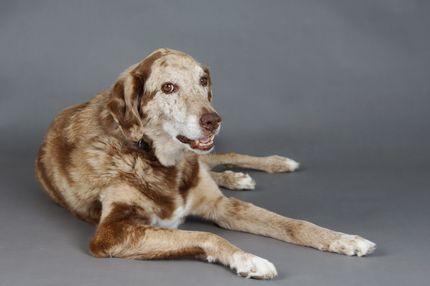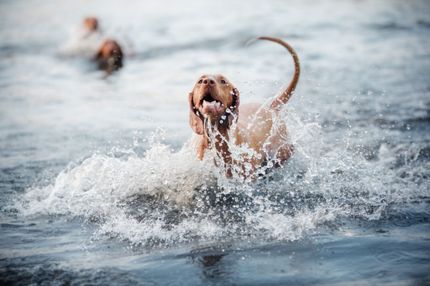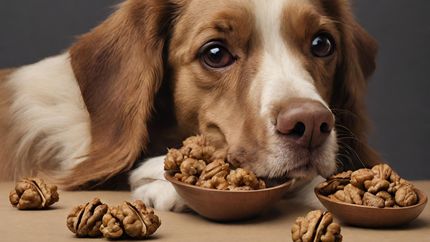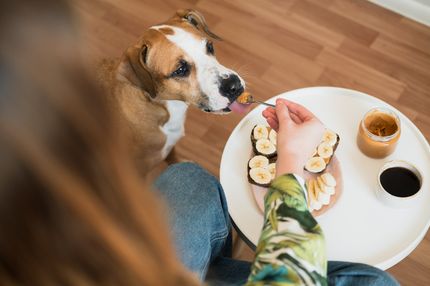Cancer in dogs - cause, diagnosis, prevention of cancer in dogs
Cancer can occur in dogs just as it does in humans. Thereby the cancer can also affect the most different areas. Whether skin cancer, uterine cancer or even bone cancer, your four-legged friends can also get tumors on the most diverse organs.
Basics and causes of cancer in dogs
What cancer is really triggered by, can also be analyzed in dogs still not one hundred percent. However, it has been proven that cancer is still one of the most common causes of death in dogs. According to statistics, even every fourth dog is affected by cancer or tumors in the course of his life.
The following causes can contribute to cancer in dogs:
- Diet
- Environmental pollution
- Hormones
- Stress and lifestyle
But even dogs that are fed absolutely healthy, are kept exemplary and species-appropriate and are hardly affected by pollution can fall victim to cancer. As with humans, this disease is not really under control. However, it is important that cancer in dogs is also treated quickly. Because also here it is a race with the time. The faster the four-legged friend can be treated, the greater the chances of recovery.
Symptoms of cancer and diagnosis of cancer in dogs
Whether the dog is well or badly, you can only recognize, if you always observe your quadruped well and also react attentively to smallest changes. Signs of cancer can be wounds that heal poorly, pimples, bumps, lumps and masses that do not disappear and become larger and larger, or even sudden lameness without obvious injuries. If your four-legged friend has a poor appetite and is constantly losing weight, bleeds frequently, and blood can be found in saliva, urine, feces, and vomit, and if the four-legged friend suffers from difficulty swallowing, these could also be signs of cancer. If your dogs suddenly have abnormal discharge and problems breathing and difficulty passing urine and defecating, then these are also symptoms of a possible disease.
However, you don't have to panic now because there can be a harmless explanation for all these symptoms. It is only important that you have these symptoms clarified immediately by a veterinarian. If it is a harmless disease it is good, and if it is cancer, then you have the chance to help the quadruped by a quick and targeted treatment.
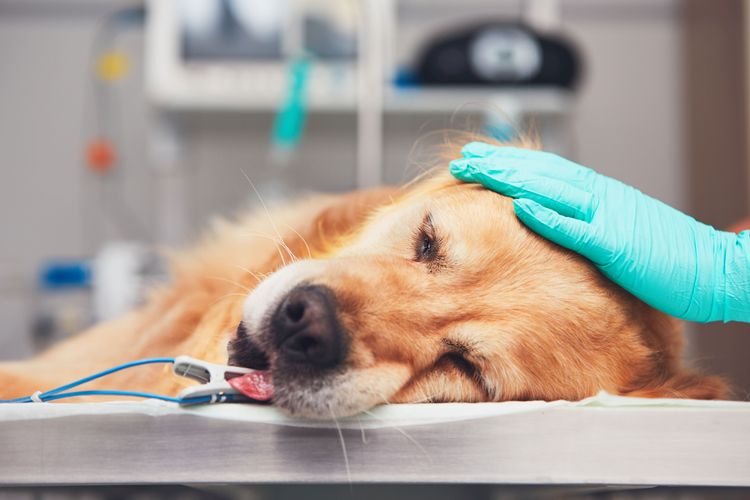
Therapy and prevention of cancer in dogs
Tumours can be surgically removed from the quadruped. This must decide alone the veterinarian, whether this is necessary and possible. Also, the cancer can be prevented from growing by radiotherapy and chemotherapy. Radiotherapies and immunotherapies are also possibilities to cure bone cancer and co in dogs. There are also alternative therapies with mistletoe injections or CBD. However, for this you also need to consult a good veterinary practitioner.
Preventively there is not much that can be done. It is often recommended to spay bitches to prevent mammary tumors from forming. But even this kind of prophylaxis is not one hundred percent proven. The transmissible venereal canine tumor, also known as CTVT, is transmitted during the sexual act of the quadruped. Here, the sticker sarcoma affects the genitals of the dogs. If the dog is not allowed to mate with other four-legged friends, this risk of infection is eliminated.
You can also ask the breeder whether cancer diseases are known in the pedigree of the quadruped. Some breeds are considered particularly susceptible to cancer. These include Staffordshire Terriers, Irish Water Spaniels, St. Bernards, Viszla, Leonbergers, Giant Schnauzers and Flat Coated Retrievers.
Obesity, lots of chemicals and a poor diet can also promote cancer. Here, care should be taken to have little added sugar and low carbohydrates in the diet. Sufficient exercise and lots of vitamins and minerals are a good basis to prevent your dogs from getting cancer. In this way you can also avoid putting your dog to sleep - this is often the last resort if the dog is suffering extremely.
